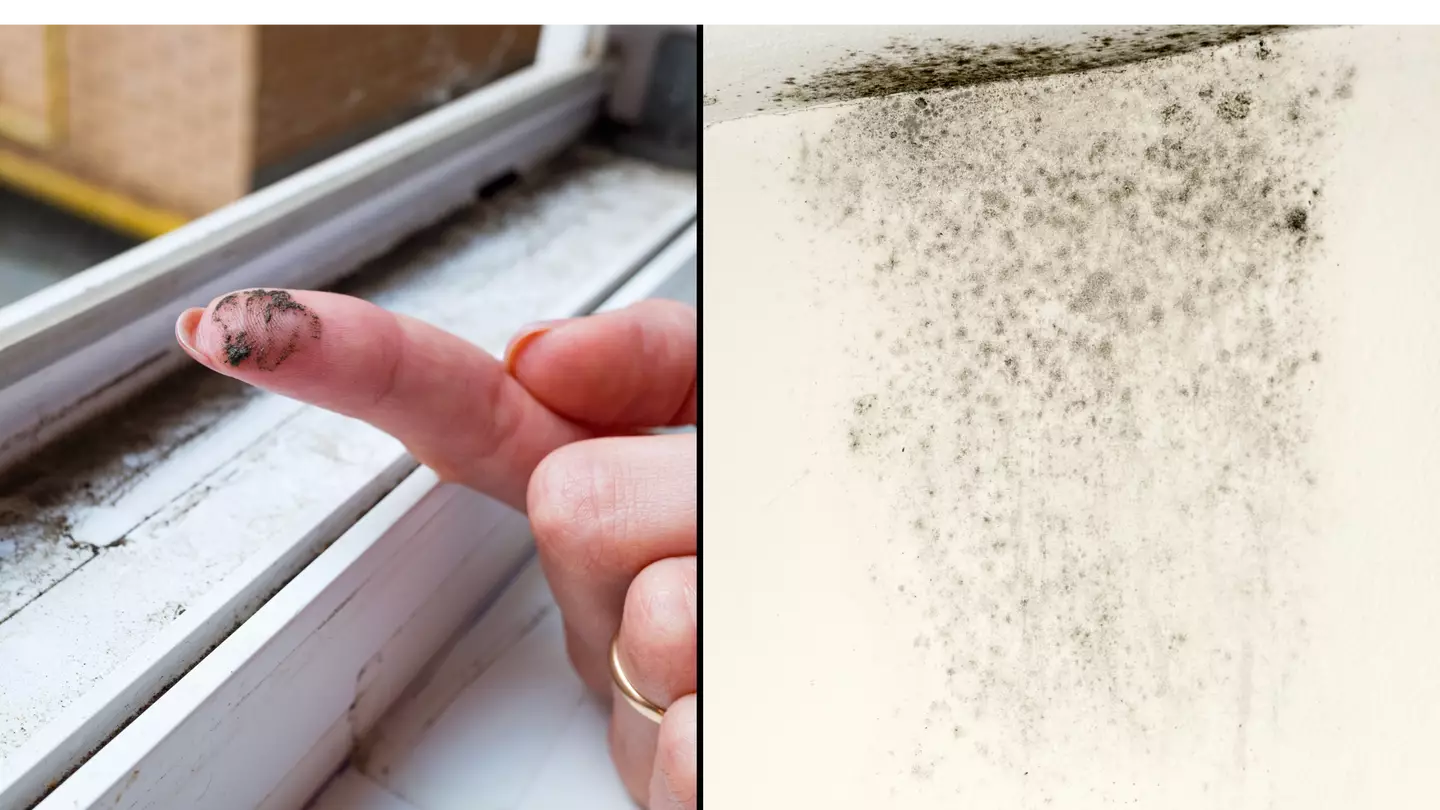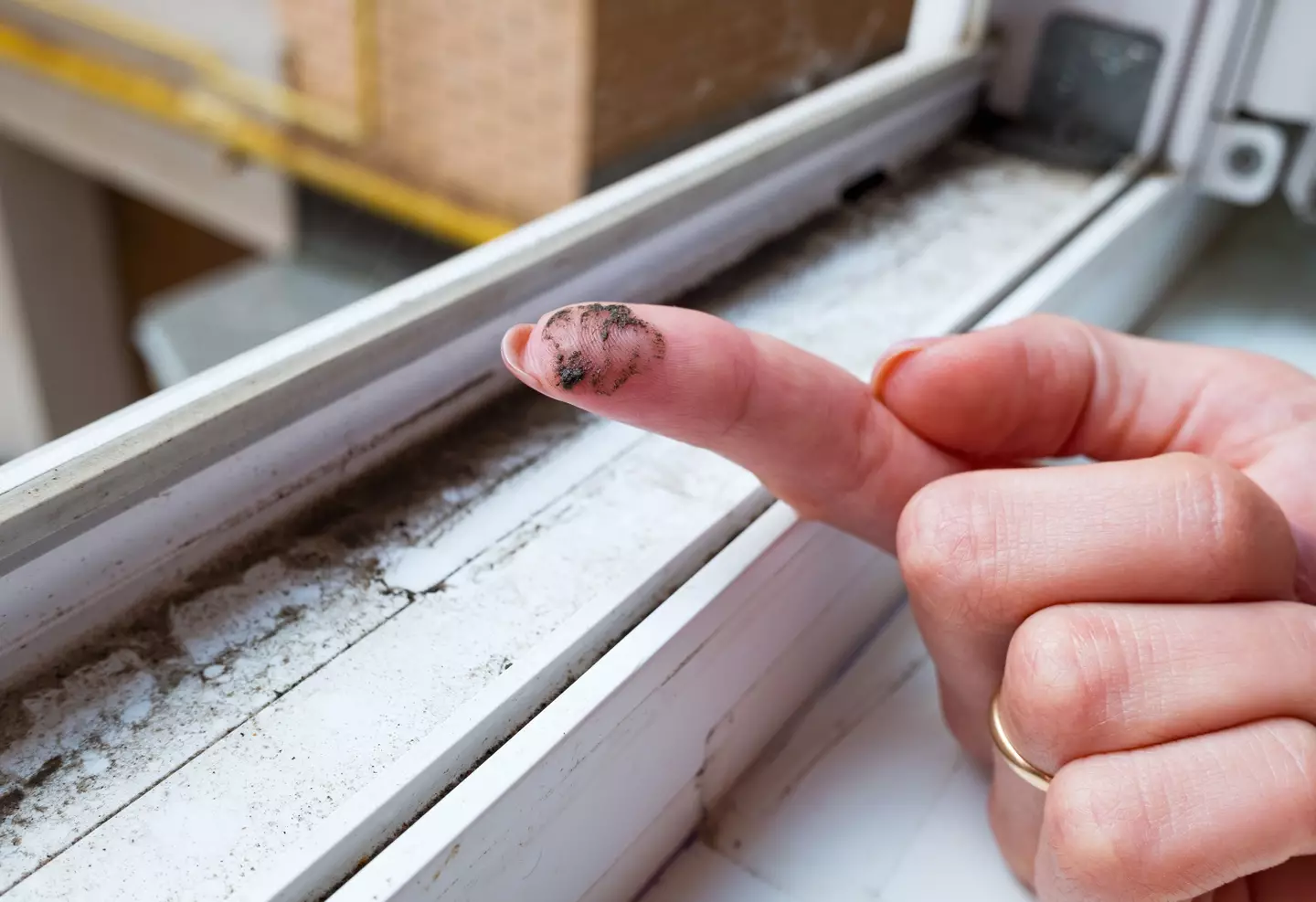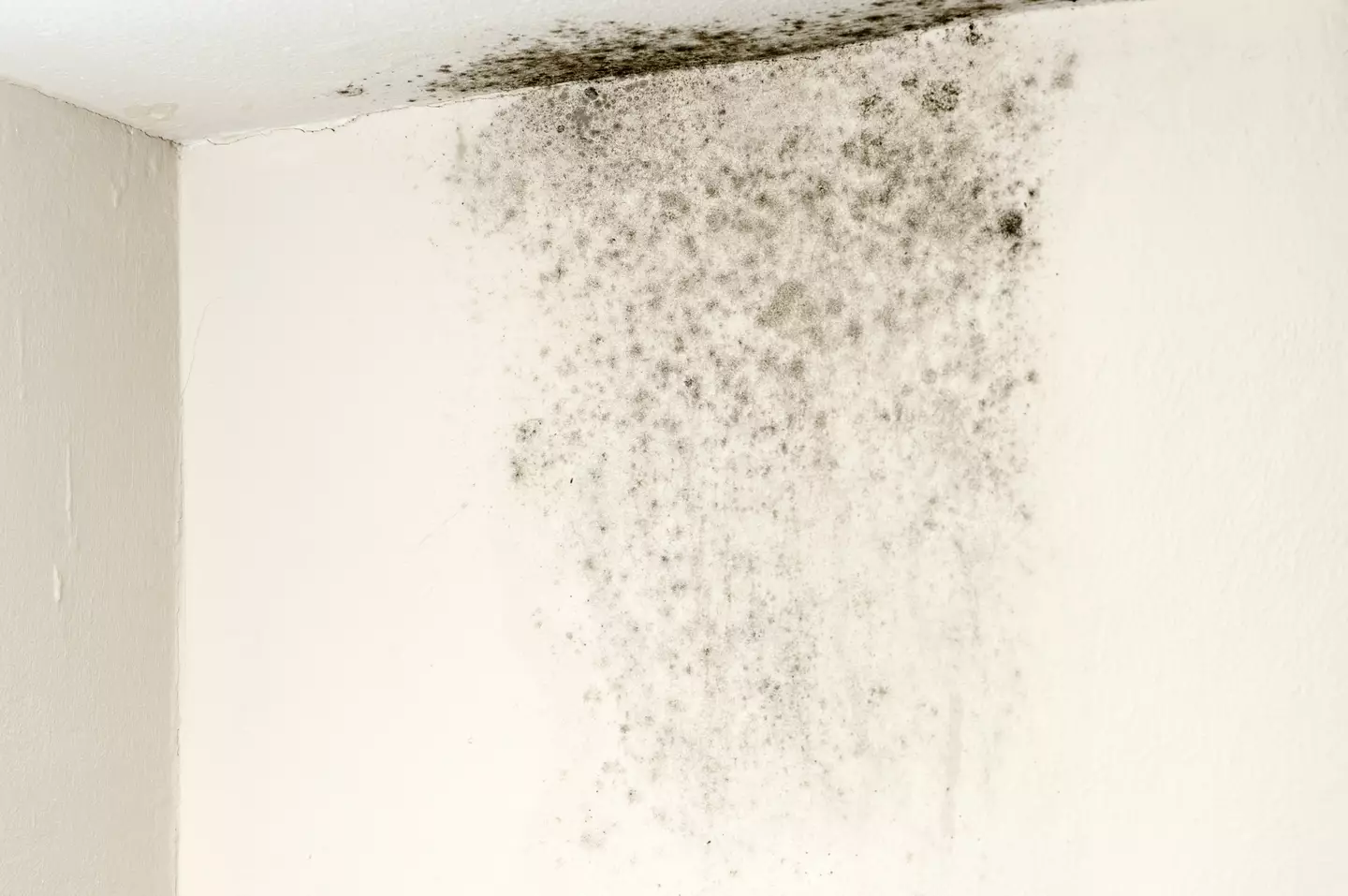
It's that time of year again. The weather is miserable, it's freezing outside and no matter what time of day you get up, it's still dark when you get out of bed.
During these winter months, mould in our homes can exacerbate. Especially if areas of your property are left cold and damp without any heating on, such as the bathroom or under kitchen sinks.
If mould is left untreated, it can continue to grow and eventually lead to respiratory illnesses, allergies and asthma. In some more serious cases, mould in homes can lead to fatalities.

The microscopic fungus grows in damp places, releasing dangerous spores into the atmosphere. You can identify mould in your home as it has a few noticeable characteristics.
Advert
Mould is often fuzzy with black, white or green patches and comes with a musty smell.
Black mould can trigger asthma attacks and cause allergic reactions such as skin rashes, a runny nose and red eyes. Those with compromised immune systems, such as babies and the elderly, are more at risk to the symptoms.
The most common cause of mould in UK homes is condensation; often found in spaces of the home where there's high moisture levels like bathrooms, kitchens and on and around windows. If condensation is left to sit, the surface can become damp and create the breeding conditions needed for mould to grow.
Daily tasks such as cooking and drying washing indoors can also exacerbate the problem.
Advert
To avoid this, try taking shorter showers and ensuring your bathroom extractor fan is switched on during and after your shower to stop the steam from your shower turning into condensation. It's also recommended that you open your windows when cooking or drying washing indoors as this can help let the moisture in the air escape. If cooking, make sure your hob's extractor fan is on a high setting. Wiping down surfaces can also stop moisture from pooling on windowsills and walls.

Don't forget to check for leaky pipes or gutters that can make problems worse.
However, a new law is set to be introduced giving renters more support when it comes to tackling a moudly home.
Advert
The law was created after two-year-old Awaab Ishak sadly died after prolonged exposure to mould in his home, meaning that landlords must investigate mould-related issues within 14 days and begin to tackle them within a further seven days. Any emergency repairs would need to be made within 24 hours and landlords who fail to comply with this could be taken to court.
A consultation for the proposals closes on 5 March with the government saying it will bring Awaab's Law into force 'as soon as practically possible'.
Featured Image Credit: Getty Stock Photos